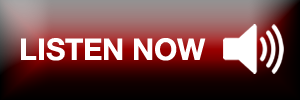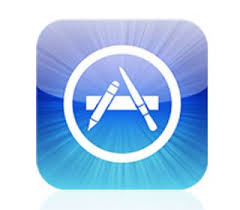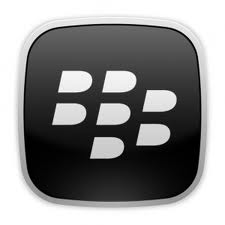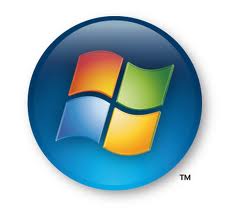Earlier this week, Libby and I got the opportunity to speak with Truett Heintzelman and Philip Lupton of the Americana folk-rock band Briscoe ahead of their show in Lubbock, Texas at Cactus Theater. Here is our full interview:
This interview has been edited for length and clarity and was aired February 15, 2024.
Zachary: I just wanted to first ask, you guys are no strangers to touring and playing shows, but how exciting is it to get to embark on such a large tour like you guys are about to go on?
Truett: It’s so exciting. We’ve been talking a lot about it in the past few days, especially just seeing our tour graphic that we’ve been posting, and seeing that many dates on a poster with our name on it are just kind of insane. It’s pretty unreal, so we’re stoked to be in front of a lot of people and go to a lot of new places like Lubbock, for example, that we haven’t played before. It’s such a good time, so we’re excited to get the ball rolling on this spring tour.
Zachary: It’s cool just to see how you guys have had success in less than a year after you’ve graduated. What does that mean to you guys?
Philip: We planned a lot for this and had really taken time to get all of our affairs in order once we graduated to be able to do this at the highest capacity possible, so it’s really cool for us to see this longer-term plan because we’ve been planning on a tour like this. We did a pretty big tour to do these and seeing these goals and dreams that we’ve had for such a long time play out just means the world to us.
Zachary: Just speaking on your music, there is an almost three-year gap between your debut EP and then now your debut album, West of It All. What did you guys feel you’ve learned by performing and growing as a group during that period?
Truett: Man, we grew in so many ways during that time. Three years is a good amount of time at any life stage, but when those three years span our late teens, early twenties, and college years, those are pretty formative, and ever-changing years. I think we grew up as people and as young men. I think our songwriting developed a lot in that time. I think part of that was hand-in-hand with growing up. I think part of that was also repetition of continuing to write songs, so I think that is a big way in which it changed. I think we also just got the opportunity to play a lot more during that time.
I think our live set is just night and day. When we released the EP and a lot of those songs, we were primarily playing duo sets, a lot of backyard shows, and things of that nature. At that time, we added a couple guys to our live set and our performance. We now play with a five-piece band. Obviously, just having the extra firepower on stage is by itself incredible. On top of that, the three guys that we play with are super-talented musicians, so that helps a ton. There was a lot of change that happened during that period. I think the cool thing about it is we are continuing to grow, continuing to find ways to improve our live set, and continuing to write songs.
It’s funny that even the songs that we’re writing today at this moment in time we feel are better written and lyrically improved from even the songs on West Of It All. It’s just a constantly changing and growing process which we love.
Zachary: Speaking on the writing of the album, how did you kind of approach it during such a pivotal change in your life with the success that you were receiving and then graduation right on the horizon or just following graduation?
Philip: I think that our songwriting has always come relatively natural. Not in the sense that we’re just the best songwriters ever, but it never has felt too forced so I think the songs reflect the times of life that we’ve been in. I think when we’re approaching that I think it just kind of happens. I don’t think we have to put too much thought into writing songs that mean something to us because as we continue to grow as people that is just the result of that.
Zachary: What was it like to be able to work with a producer as well-established and legendary as Brad Cook? How did he influence or help cultivate the final sound of the album?
Truett: That was another kind of moment where we took a step back and just were amazed at the fact that we were getting to work with and become friends with such an incredibly talented producer and musician, but also just an incredible human being. Brad is the best of the best. He’s a super-talented producer who has done projects and all sorts of genres. He’s worked with so many artists that he’s produced directly, and he’s also worked on so many other projects as well, so the experience that he brought was insane and super helpful. He also is just very forward-minded in the sense that his goal and focus in recording is not to make an album that sounds like this band or sounds like that band or reminds people of this period. His goal and hope is to make something that’s novel and new to the listener.
I think he kind of helped us take various musical inspirations and other inspirations that are maybe remnants of older periods or other bands. He helped shape that and present it in a way that is unique, new, and our own, so having him in that process was huge. We’re super grateful for his guidance as a professional and as a friend.
Zachary: I think it’s cool that he’s able to help you build your own sound instead of trying to copy someone else. You get to build your own style, your own brand, and make yourself recognizable as “This is Briscoe.”
Philip: Yeah, absolutely.
Libby: Austin is known for its culture and especially its music scene. How do y’all think the city has inspired your music?
Philip: That’s a great question. I’ll answer the question indirectly, but I think that Austin has nurtured our music and our career thus far in a way that we have been here since we really started playing gigs at all, so we’ve gotten to see this slow transition, like Truett was saying earlier, from backyard shows during COVID to 40 college people at our first headline show. The full band was in Austin. Then playing that same venue and doing two nights six months later and working our way up the ladder there. We got to play Antone’s which is an incredible and legendary blues venue in downtown Austin.
From there, you get to make some jumps and you get to play some really cool venues here and there on different gigs. Then we get to headline Scoot’s Inn, and now we get to do Stubb’s in April which is probably Austin’s favorite venue, so it’s just so cool to have a home team that supports you and is with you for this ride. Austin is such a great place to have this home team because they rally around live music so well. Whenever there’s a new band in Austin, it gets a lot of buzz, and I think we were able to capitalize on that as we were starting out and now we’ve been able to find an expanding group in Austin that we really connect with and I think there’s an element of pride that comes along with being in the live music capital of the world. It’s cool to have that home team with us as we grow.
Libby: I think that sense of community is very palpable.
Philp: Yes, absolutely. It really is. There are so many cool smaller music clubs in South Austin. I didn’t even mention The Continental Club and C-Boy’s. Just places that people don’t go to see an artist. They go to see live music, and I think that’s pretty unique about Austin.
Zachary: Well, speaking of Austin, a hard-hitting question for you guys: who has the best BBQ in Austin?
Truett: Man I honestly haven’t done all of the city of Austin’s BBQ well enough, but Terry Black’s BBQ on Barton Springs is pretty dang hard to beat. I would say you can’t go wrong with that, [To Philip] but you really like Lambert’s as well, right?
Philp: There’s this place called Lamberts which is kind of more restaurant barbecue, but that place is sick. I would also answer the question with Terry Black’s BBQ in Barton Springs.
Zachary: One is the true winner, but one is the favorite.
Philp: Exactly. Lamberts is my birthday spot, so that says something.
Zachary: Changing gears completely, I’m a huge fan of typography and well-designed graphics, so your tour and show designs on social media are really appealing to me. It seems like a lot of them are done in-house. What goes into designing those posters?
Philp: I do a lot of that graphic design for the band. I just picked that up whenever Truett and I first started playing in shows, and we had a vision for what we wanted to brand ourselves as, so I started to learn a few of those softwares to kind of bring that to life. I think a lot of what inspires those graphics is what inspires our songwriting and our music as a whole. I think there are a lot of outdoor influences and early seventies-era music. I think everything that has to do with that is just super cool like different retro color schemes or old fonts. Cowboy, Western fonts, and stuff that we just are drawn to. I think it’s super cool that we get to do a lot of that in-house because we have a lot of control over how we brand ourselves and present our band to the world visually.
Zachary: I think that’s cool because you look at the designs of the posters, the album cover, and stuff like that and then you hear the music, and it sounds like how the poster looks. I think it all really comes together and gives that sound. I think that’s really cool that you guys succeed with that and make it yourself. That’s cool.
Philip: Thanks. We appreciate it. That’s something that we love to do.
Libby: Shifting gears a little bit again, y’all have opened for some pretty big acts like Dave Matthews Band, Noah Kahan, Zach Bryan, and Caamp. Was there anything that y’all learned about the art of live performance by seeing these acts?
Truett: Yes, absolutely. We’ve been super fortunate to get to support and open for and even just be on festival lineups with some incredible bands. You mentioned Dave Matthews Band who is one of the best touring bands of all time, but then also got newer bands that are really on top of the game right, like Caamp. I think every time we get to support or just watch a band that is on the same festival lineup, I think there are little things that we learn each time.
I know that one show that I think really influenced how we approached our live set was seeing The Avett Brothers last March at a festival in Florida. We went in as big fans of The Avett Brothers. They are super influential to Philip and I specifically as a duo. A lot of our kind of harmony sound is inspired by them, but just getting to watch their live set. It was just seamless. There was not really much dead space, that was something that we had to learn. Instead of just finishing one song and then there being 30 seconds of silence before going into the next song. Whether it was their bassist playing a little lick, The Avett Brothers always had something to fill the space and then went directly into another song. Their transitions were seamless and it just made the show which was already musically incredible, even better.
There are so many bands out there that do it so well, and we love to take every opportunity we can to learn from that. All those bands you mentioned are where we want to be, so learning from them is something that I think we try to do a good job of.
Zachary: Speaking of festivals, you play all these intimate shows like the backyard shows in Austin, and have grown from there. How did you shift the show for a huge festival like Bonnaroo, Innings, and all the other ones you’ve played?
Truett: It’s a different approach, for sure. A lot of our times at festivals, there’s hopefully some people there that know us and come see us, but at some of these bigger festivals, we assume going in that a lot of the people in the crowd don’t know who we are, so this is our opportunity to make a good first impression. The way we think about our set changes mainly in the sense that we want our festival set to be pretty high energy the whole time whereas with a small and more intimate headline show, we’re thinking about the flow of our set list and ways in which we can have a ton of energy, but then also opportunities for us to strip it down a little bit.
With the festival, it’s just how we can keep this high energy to ensure that everybody in the crowd, even if they haven’t heard of us or even if they don’t really particularly like our genre of music, have a good time while they’re listening to us and want to come back in the future.
Zachary: Staying on festivals, Our co-worker Andrew went to Innings in Tempe, and he was telling me how his first exposure to you guys was seeing you guys walk around the festival grounds with signs telling people to come see you guys perform. It clearly worked because he went and saw you guys at the set the following day. What’s the story behind the signs, and whose idea was it?
Philip: That’s a super funny story. That was the first real festival that we got to play, and that lineup was so much with so many great bands on that lineup. We had a bunch of buddies who made their way to Tempe and went to the festival to watch our set and just to hang out. We got there early to meet some of the other artists who were there and just hung out at the festival. Our friends painted some signs that were something along the lines of “Go see Briscoe tomorrow” or “Best band in the West”.
They shopped our set around on Saturday, and on Sunday, it was so much fun because after we played, we were down in the crowd and people would recognize us from the set and they’d say “Oh, we enjoyed your set. We came to watch you because we saw one of your friends holding a sign yesterday” It was fun. It was kind of a fun little homegrown deal and a funny story looking back at the first festival.
Zachary: It’s that real guerrilla marketing that you guys are doing. It’s unique to a band to do something like that, and if you see a band putting that effort in, you gotta go see them.
Philip: Yeah, boots on the ground.
Libby: So Lubbock is obviously y’all’s first stop on the tour. What brought you to the city?
Philip: We’ve wanted to play Lubbock forever. Lubbock is just such a great city. I’m from San Angelo, and I’ve got quite a bit of family in Lubbock, so I spend a good amount of time there, and the culture of Lubbock, especially with Texas Tech, is very energetic. That being said, it’s a little further out than a weekend trip would allow, and we really haven’t made it out west. This is our first tour where we head west. We’ve gone east a few times, but we haven’t headed west, so whenever we were getting the dates together for this tour, Lubbock was a must-stop.
We’re really excited about it. We have a good fan base there. We’re playing at the Cactus Theater which seems like a really cool spot. It’s indoors and that Lubbock weather can get pretty crazy pretty quick. We’re just super excited to be in Lubbock. I think that our music aligns with a lot of Lubbock. I think that it’s not quite country music, but it’s got that Western influence, and I think the Texas Tech population especially would resonate with that.
Zachary: Yeah, absolutely. Cactus Theater is one of the most historical venues in the city, so it’s always really cool to see acts come into town and get to play there. I think that venue was made in the 50s and it’s still up and running today, so I think it’s really cool.
Philip: My aunt and uncle who live in Lubbock are friends with the owners, so they heard we were playing there, and they got to go take a tour. They were sending me videos and stuff, so I’m really excited about it. It looks like a beautiful theater. Great place to start out in Lubbock.
Zachary: I normally ask this to bands who are midway through their tour and have settled into their road trip, but every band seems to have a playlist of music that they listen to as they go on tour. Any idea of what artists or albums you two are going to be listening to when you hit the road?
Philip: I recently made a playlist called Fresh Water, Beer, Sunshine, and I think that is the playlist, at least when I have aux, I’m going to play. We’re going to have some upbeat, mid-1970s music with a lot of Linda Ronstadt, some Lynyrd Skynyrd, the Allman Brothers, and some Southern rock. That’s where I’m leaning.
Zachary: Cool. It sounds like it’s going to be a good mix. Of course, depending on how the drive goes, the music changes. You gotta have some good energy going in when you hit the road.
Philp: Oh, Yeah.
Zachary: We have one last question. We have what we call our KTXT signature. It’s a thinker, so you guys might have to think about it for a bit. If you could soundtrack any movie replacing the soundtrack with your own music, what movie would that be?
Truett: That is a big question.
Philip: I’m not the best with movies…
Truett: My mind goes to, it’s so Hill Country, West Texas-inspired, that I think of an old Dazed and Confused-esque movie. I know that’s like an Austin movie, but just something of that nature would be my hope. I would hope that people would agree with that.
Libby: Yeah, absolutely.
Zachary: I think that your music really fits with that.
Truett: Let’s go. Now we just need to get McConaughey on board.
Zachary: Get a music video with him. I heard that it is popular now.
Truett: Exactly




